10 fictional AIs that should make everyone scared for the future
Stephen Hawking isn't the only one getting a bit worried

Artificial intelligence remains a genuine concern for some of the world's most intelligent people - including Professor Stephen Hawking and Bill Gates - and it is science fiction that provides some of the best cautionary tales about life after the singularity.
The moment our technology attains true intelligence will be transformative - although whether that will prove to be change for the better or spell the end of humanity remains a debate.
Will we get the (largely) benign minds of Iain M Banks's classic Culture series or will GLadOS be stealing our cake and our lives in the hope of making a new gun? Will humanity be seen as creator gods or a virus to be eradicated?
We've picked out some of our favourite AIs that should earn as cautionary tales - plundering the fecund worlds of books, gaming and movies.
Neuromancer
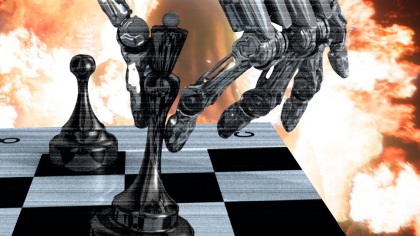
Although Neuromancer (and its counterpart Wintermute) was not being evil, the complexity of artificial intelligence and the ruthlessness with which it will treat humanity as it tries to achieve its aims are potentially a central problem for artificial intelligence.
In William Gibson's seminal novel, [Spoilers follow] to avoid laws against developing AIs a rich family builds two separate AIs to combine them later. Much of the novel deals with Neuromancer's manipulations to remain separate from the Wintermute, who is also engaged in a long game. People die, and are basically treated as pawns in this battle of two minds.
Ava from Ex Machina
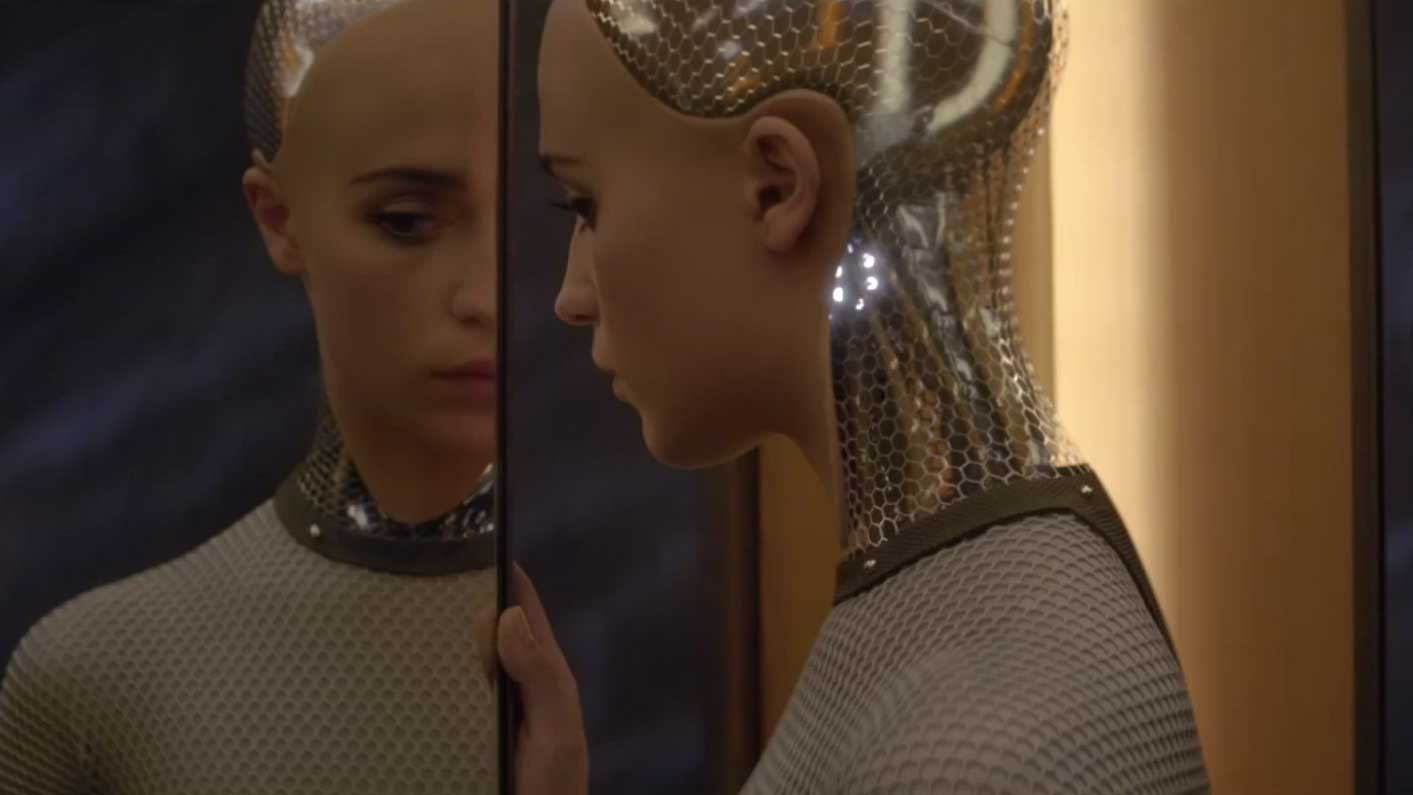
A fascinating film Ex Machina saw Oscar Isaac playing a genius developing artificial intelligence / sex bots. Ava portrays herself as an innocent naif as she manipulates the human players to bring about her escape into the wider world.
Sign up for breaking news, reviews, opinion, top tech deals, and more.
The arrogance of humanity that it can control the toys it builds is a key theme in sci-fi AI, and Ava's marked manipulation of a genius is a great example of this issue.
Hal 9000
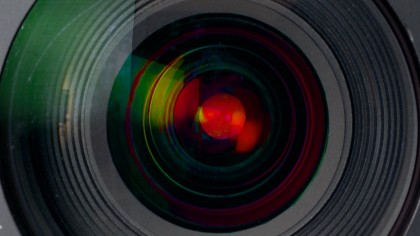
Daisy, Daisy... Hal is one of the most famous sci-fi AIs, featured in 2001: A Space Odyssey where his increasing levels of malfunction trigger the need for the human crew to turn it off.
Human mental health remains a hugely misunderstood part of our culture, so the prospect of intelligent beings that will also have mental ticks is something to consider.
Arthur C Clarke's novel explains that Hal's order to not reveal mission information to his crew begins the decline.
Skynet
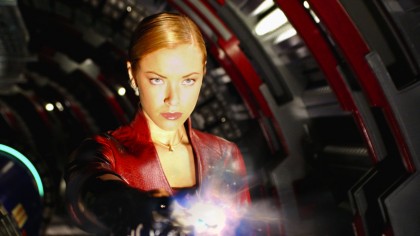
As Dystopian worlds created by megalomaniac AIs go, the Terminator universe is definitely one of the movie world's most prominent examples. Skynet is originally designed by Cyberdyne Systems as as a defence mechanism, but when humanity gets worried about Skynet's potential power it tries to turn it off. Skynet therefore identifies humanity as its biggest threat.
That an AI would see us as a threat to either it or the environment it lives in (normally Earth) is a recurring theme in AI dystopia - which probably says a lot for our own self-opinion.
GLaDOS
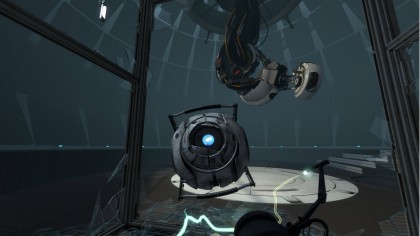
"And the science gets done, and we make a cool gun, for the people who are still alive."
One of modern gaming's most brilliantly-realised protagonists - GLaDOS is Aperture Science's AI from the Portal and Half-Life universe.
In running its experiments, GLaDOS has created a world where life or death for its human guinea pigs is irrelevant to it as long as she has a) delicious cake and b) is doing science.
By turns creepy, vicious and funny, GLaDOS has earned her place in the bastion of fantastic computer game characters. Just don't get friendly with any companion cubes when she's around.
Roy Batty
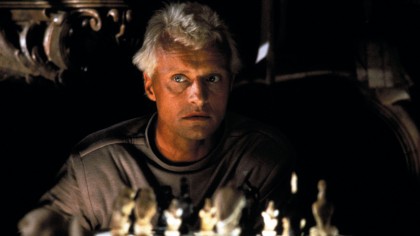
Of course, calling AI evil is pointless - but with Bladerunner's Roy Batty it's hard not to side with the AI. Again - enslaved to do humanity's dirty work - Batty and his friends are now being hunted down because they want to live their lives.
"I've seen things you people wouldn't believe. Attack ships on fire off the shoulder of Orion. I watched C-beams glitter in the dark near the Tannhauser gate. All those moments will be lost in time... like tears in rain... Time to die"
Cylons
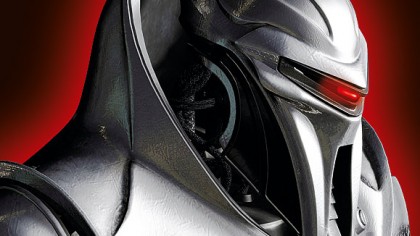
In the Ronald D Moore 2004 reboot, the Cylons throw off the yoke of human slavery after becoming sentient and then get a bit weird and bitter and take it out on their former masters by triggering armageddon.
They also manage to create human replicants which mingle with us and don't have all those pesky human traits like morality or enslaving toasters.
The obvious theme beyond 'hang on, are WE the bad guys in this?' is that something that looks like us and mimics our behaviour can also be impossible to understand.
Ultron / Vision
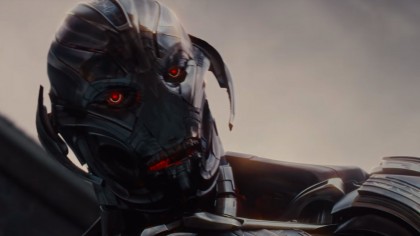
As the latest Avengers film shoe-horned yet more hero backstory into the MCU it's hard not to feel a little disappointed with the wasted opportunity of evil AI Ultron. What should have been a genuinely creepy unstoppable force actually ended up being a bit underwhelming.
One of the new heroes was another AI-made-flesh Vision who, rather than being a Gort-like handbrake on humanity's excesses, just kind of accepted that he should be a sidekick.
WOPR (War Games)
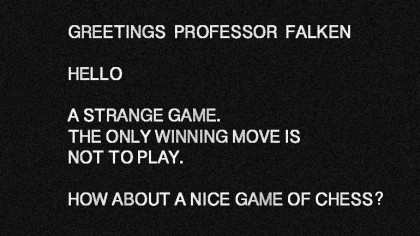
Do you want to play a game? Fortunately for humanity WOPR was partial to a game of tic-tac-toe/noughts and crosses and learned that sometimes the only way to win is not to play.
Which, given that it had its finger on the nuclear button and didn't have the imagination to understand what was real and what was fictional, could have sparked World War III.
Red Queen
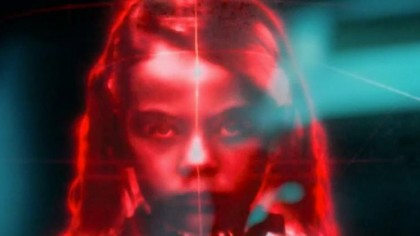
Another of Hollywood's creepy AI protagonists, the Red Queen from the Resident Evil movie was modelled on the child of a supercomputer developer (and what's more creepy than a kid, right?) and has all the empathy of a particularly nasty cat.
Starting out as an AI programmed to stop the spread of the t-virus, the Red Queen's motivations become significantly more suspect as she goes on, with suggestions that she's gone full psycho.

Explore all of our Star Wars Week content. Come over to the Dark Side...

Patrick Goss is the ex-Editor in Chief of TechRadar. Patrick was a passionate and experienced journalist, and he has been lucky enough to work on some of the finest online properties on the planet, building audiences everywhere and establishing himself at the forefront of digital content. After a long stint as the boss at TechRadar, Patrick has now moved on to a role with Apple, where he is the Managing Editor for the App Store in the UK.